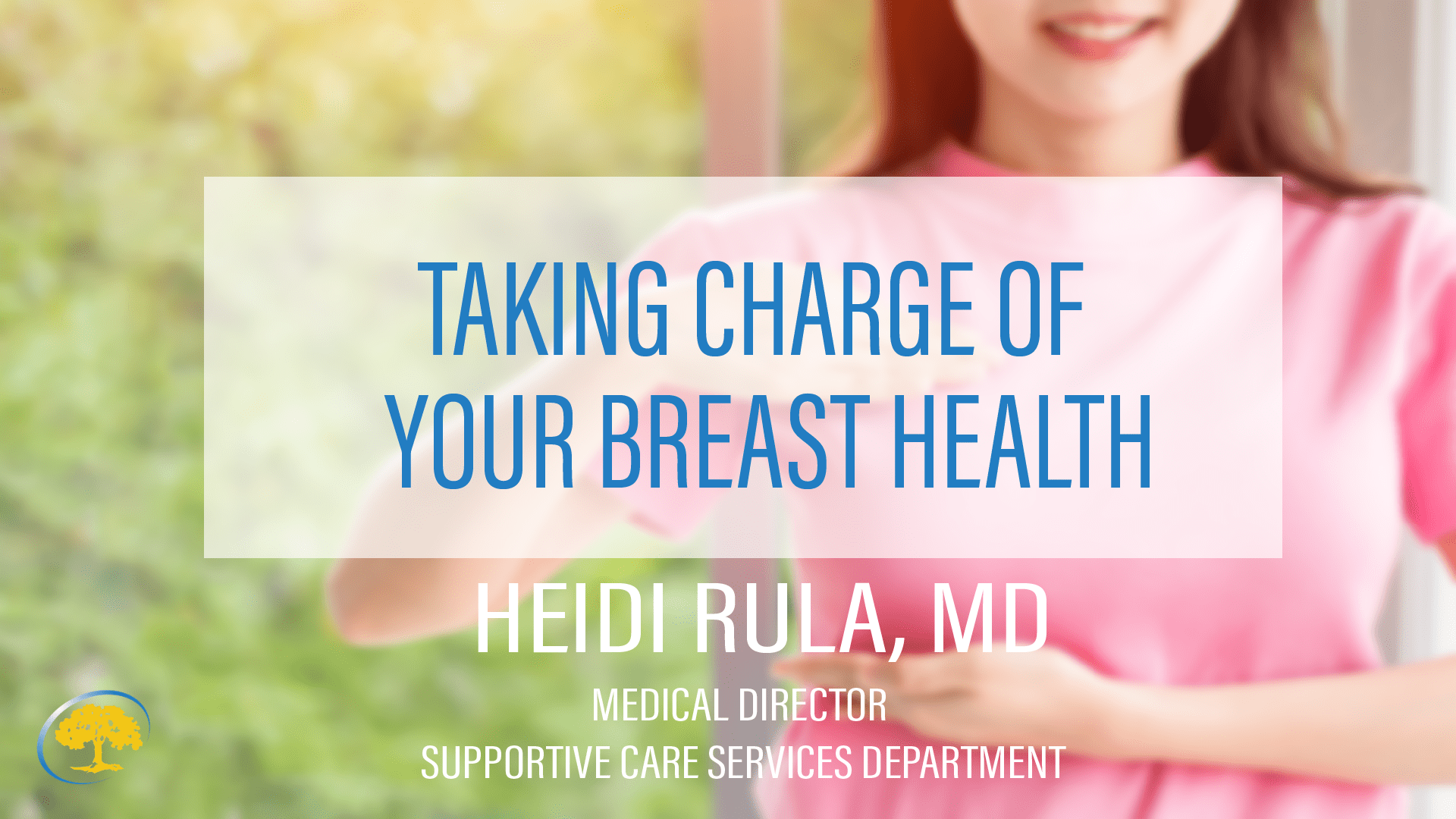
Posted 4 years ago
Taking Charge of Your Breast Health
October is National Breast Cancer Awareness Month, which makes this a good time to take inventory on what you are doing to optimize the health of your breasts.
Breast cancer is the most common cancer in women; one out of eight women will develop breast cancer in their lifetime. This is quite an overwhelming statistic and one that calls for action. Although there are some risk factors for breast cancer that we can’t change like family history and advanced age, most risk factors are ones that we can control with the way we take care of our bodies. The World Health Organization estimates that over 20% of breast cancer deaths worldwide are attributable to a combination of risk factors that include overweight and obesity issues, inactivity, and alcohol consumption.
OBESITY:
Obesity has become a national epidemic with approximately 70% of the U.S. adult population being overweight or obese. Being overweight or obese can raise a post-menopausal woman’s risk of developing breast cancer by 20 % or more. Extra body fat can increase a woman’s estrogen levels, inflammation markers as well as insulin and other growth factor levels which are thought to promote the development of breast cancer. It has been shown that losing as little as 4 pounds can start to lower that risk.
INACTIVITY:
A sedentary lifestyle is another risk factor for breast cancer. Women who are inactive at work or home more than doubled their risk of being diagnosed with breast cancer. Regular physical activity has been shown to reduce that risk. Women who increased their physical activity after the diagnosis of breast cancer lowered their risk of death by 45%. Studies have found that even a couple of hours a week of exercise can lower your risk of developing breast cancer. Low-intensity exercise like walking is beneficial but it has been shown you can get an increasing benefit as you increase the intensity and time that you exercise each week.
 ALCOHOL:
ALCOHOL:
Drinking alcohol is clearly linked to an increased risk of breast cancer. Drinking as little as 3-6 drinks a week is associated with increased breast cancer risk, and women who consume 2 drinks a day have over a 50% greater risk of breast cancer compared to those who never consume alcohol. The type of alcohol consumed doesn’t seem to make a difference meaning whether you drink beer, wine, or hard liquor, they all can increase your risk for developing breast cancer. For optimal breast health, I advise my patients to keep their alcohol intake to less than 3 drinks a week.
DIET:
The food you eat plays an important role in all aspects of your health and has been shown to directly impact your risk for developing breast cancer. Vegetable and fruit intake have found to have the biggest impact on breast cancer risk. Women who ate one serving of vegetables a day or less had a 37% higher risk of developing breast cancer compared to women who ate 4 or more servings of vegetables each day. Women who followed a diet that included vegetables, fruits, and soy for at least 5 years lowered their risk of breast cancer by 43%.
Animal fat and meat in the diet have been shown to increase a woman’s risk of developing breast cancer whereas healthy plant-based oils like olive oil were shown to lower that risk. The preferred diet for breast health is the Mediterranean diet which includes 8-10 servings of vegetables and fruits a day along with nuts and seeds, and fatty fish and olive oil and limits processed foods, sugar, red meat, and dairy products.
VITAMIN D:
Other factors like Vitamin D status have also been linked to breast health. Most people are unaware that vitamin D not only plays an important role in bone health but also impacts cancer risk. Women with high normal vitamin D levels were found to have a 30% lower risk of developing breast cancer compared to women with low vitamin D levels. Low vitamin D levels also have been linked with denser breast tissue which carries a higher risk of breast cancer. Ask your doctor about getting your vitamin D blood test (serum 25OH Vitamin D level). Maintain a level above 40 ng/ml through diet and if needed take a Vitamin D supplement to achieve this level.
SIMPLE CHANGES
What are you willing to do to improve your breast health? Simple changes like lowering your alcohol intake and making sure your vitamin D level is optimized can improve breast health. If you are overweight, losing even a few pounds can be beneficial. Can you become more active?
Would you be willing to commit to getting up to move around every hour at work or how about making a commitment to get 30 minutes of aerobic exercise in a day? Nutrition is important for breast health as well as overall health. Can you eat a few more vegetables a day or cut out a few servings of red meat or other fatty foods each week? Small changes in the way you care for your body can result in big payoffs for your health.
 About Heidi Rula, M.D.
About Heidi Rula, M.D.
Dr. Heidi Rula joined Ironwood in 2018 to launch the Integrative Oncology program. She is board certified in family medicine and fellowship-trained in Integrative Medicine. Dr. Rula has been a practicing physician in the Phoenix area for approximately 20 years and has been recognized by her colleagues as one of Phoenix’s “Top Doctors” on multiple occasions.
Dr. Rula has played a key role in bringing integrative medicine to the Valley. She served as the medical director of the University of Arizona Integrative Health Center where she leads a team of physicians and complementary practitioners in a unique model of integrative primary care that she helped to develop along with Dr. Weil and the UA Center for Integrative Medicine.
About Ironwood Cancer & Research Centers
Ironwood Cancer & Research Centers (ICRC) is the largest multi-specialty oncology network in the Greater Metro Phoenix area. They have over 100 medical providers, a robust Integrative Services program, and a dedicated clinical research department. Ironwood Cancer & Research Centers has 15 valley locations and five comprehensive cancer care centers that offer a multi-disciplinary approach for expedited personalized patient care. For more information, please visit www.ironwoodcrc.com.


 ALCOHOL:
ALCOHOL: